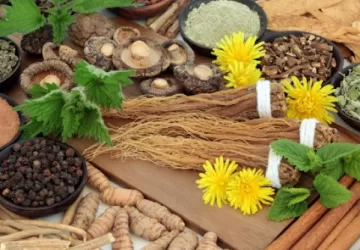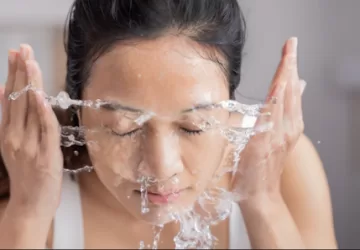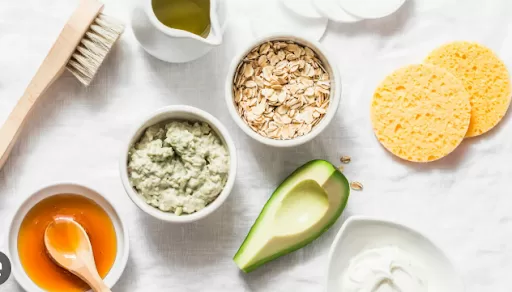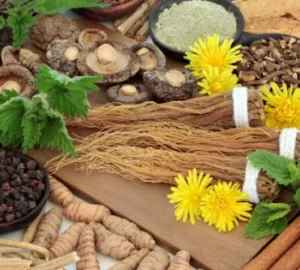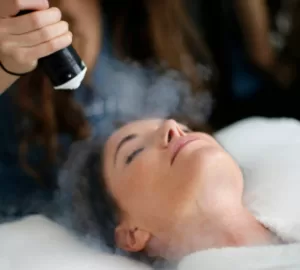The desire for naturally radiant and healthy skin has driven many beauty enthusiasts to explore DIY herbal skincare. Unlike commercial products laden with chemicals, DIY herbal skincare harnesses the power of natural herbs to nourish, heal, and rejuvenate the skin. Whether you’re looking to soothe irritation, brighten your complexion, or simply maintain a healthy glow, herbal treatments offer a customizable, eco-friendly alternative. From concocting homemade masks to creating refreshing toners, there are an abundance of ways to incorporate herbs into your beauty routine. Imagine whipping up a simple face mask from ingredients right in your kitchen, all while knowing it’s free from harmful additives. With a bit of knowledge and creativity, you can craft your herbal skincare regimen that’s tailored to your unique needs.
Why Choose DIY Herbal Skincare?
Herbal skincare is more than just a trend—it’s a return to age-old wisdom combined with modern practices. By creating your herbal treatments, you gain complete control over the ingredients, ensuring that your skincare is natural, safe, and effective.
Benefits of Herbal Skincare:
- Natural and Gentle: Herbs are less likely to irritate sensitive skin compared to synthetic ingredients.
- Customizable: Tailor treatments to your specific skin type and concerns.
- Cost-Effective: Homemade remedies are often more affordable than branded products.
- Sustainable: Reduces plastic waste and supports eco-friendly practices.
- Healing Properties: Many herbs possess anti-inflammatory, antibacterial, and antioxidant benefits.
Best Herbs for Skin Repair
Skin damage can result from factors like sun exposure, pollution, and aging. The good news is that nature offers powerful herbs to rejuvenate and restore your skin.
1. Aloe Vera:
Aloe vera is renowned for its soothing and hydrating properties. Rich in vitamins A, C, and E, it promotes collagen production and aids in skin repair.
DIY Tip: Apply fresh aloe vera gel directly to sunburned or irritated skin for instant relief.
2. Calendula:
This flower’s anti-inflammatory properties make it ideal for healing wounds and reducing redness. Calendula oil can help repair cracked or dry skin.
DIY Tip: Infuse calendula petals in olive oil for a healing balm.
3. Gotu Kola:
An ancient Ayurvedic herb, Gotu Kola, boosts collagen synthesis and accelerates wound healing. It’s particularly useful for reducing the appearance of scars.
DIY Tip: Mix Gotu Kola powder with honey for a hydrating face mask.
4. Chamomile:
Chamomile is famous for its calming effect on inflamed skin. It reduces redness and irritation, making it great for sensitive or acne-prone skin.
DIY Tip: Brew chamomile tea, cool it down, and use as a soothing facial toner.
Herbs for Skin Problems
When skin issues like acne, eczema, or inflammation arise, certain herbs can offer relief and promote healing.
1. Neem
Neem is a powerhouse when it comes to fighting acne and bacterial infections. Its antibacterial and antifungal properties make it a go-to for troubled skin.
DIY Tip: Blend neem leaves into a paste with turmeric to create a potent anti-acne mask.
2. Turmeric
Known for its anti-inflammatory and antioxidant properties, turmeric helps reduce redness and lighten dark spots.
DIY Tip: Combine turmeric with yogurt and honey for a brightening and clarifying mask.
3. Lavender
Lavender is excellent for soothing inflamed or itchy skin. Its antibacterial properties also make it beneficial for preventing acne.
DIY Tip: Add a few drops of lavender essential oil to your moisturizer for a calming effect.
4. Rosemary
Rich in antioxidants, rosemary improves circulation and reduces puffiness. It also helps control oil production, making it great for oily or combination skin.
DIY Tip: Use rosemary-infused water as a refreshing face mist.
Best Herbs for Clear Skin
If clear, glowing skin is your goal, these herbs can help detoxify, brighten, and smooth your complexion.
1. Green Tea
Packed with antioxidants, green tea fights free radicals and reduces redness. Its anti-inflammatory properties make it perfect for reducing acne.
DIY Tip : Brew green tea, cool it, and use it as a toner to tighten pores.
2. Rosehip
Rich in vitamins A and C, rosehip oil promotes skin regeneration and reduces blemishes. It’s ideal for fading scars and evening out skin tone.
DIY Tip : Massage a few drops of rosehip oil onto your face before bedtime.
3. Holy Basil (Tulsi)
Tulsi detoxifies the skin, combats acne, and helps reduce pigmentation. It purifies the blood, contributing to a healthier complexion.
DIY Tip : Make a face pack by mixing tulsi powder with rose water for a rejuvenating experience.
4. Mint
Mint leaves contain salicylic acid, which naturally combats acne and soothes irritated skin.
DIY Tip : Crush mint leaves and mix with cucumber juice for a cooling mask.
Best Herbs for Skin Whitening
Herbs can naturally lighten dark spots and brighten your complexion without harsh chemicals.
1. Licorice Root
Licorice extract inhibits melanin production, reducing hyperpigmentation and dark spots.
DIY Tip : Add licorice powder to your face pack to lighten blemishes.
2. Saffron:
This luxurious herb brightens the skin and enhances radiance. It also improves skin texture and tone.
DIY Tip : Soak saffron strands in milk overnight and apply the mixture as a mask.
3. Sandalwood
Known for its skin-lightening properties, sandalwood helps achieve a smooth and even complexion.
DIY Tip : Mix sandalwood powder with rose water for a nourishing face pack.
4. Papaya Leaf
Rich in papain, it exfoliates dead skin cells and promotes a brighter appearance.
DIY Tip : Blend papaya leaves and apply the paste as a mask for glowing skin.
How to Incorporate Herbal Skincare into Your Routine
- Identify Your Skin Type – Choose herbs that suit your skin’s needs.
- Test for Sensitivity – Perform a patch test before applying any new herbal mixture.
- Start with Simple Recipes – Begin with single-herb masks before experimenting with combinations.
- Consistency is Key – Regular use yields the best results.
- Store Properly – Keep herbal concoctions in cool, dark places to preserve potency.
The Future of DIY Herbal Skincare
As consumers continue to move away from synthetic ingredients, the demand for natural, DIY skincare is growing. Herbal remedies not only connect us to nature but also offer a more sustainable approach to beauty. From reducing chemical exposure to promoting self-care rituals, DIY herbal skincare is more than just a trend—it’s a lifestyle choice that prioritizes wellness and the environment.
Conclusion: Embrace the Power of Nature
DIY herbal skincare is an enriching way to nurture your skin while embracing sustainable beauty practices. By using natural herbs for treatments, you’re choosing purity, efficacy, and personal empowerment. Whether your goal is skin repair, brightening, or tackling skin problems, nature’s pantry has you covered. Dive into the world of herbal beauty and let your skin thrive naturally!


